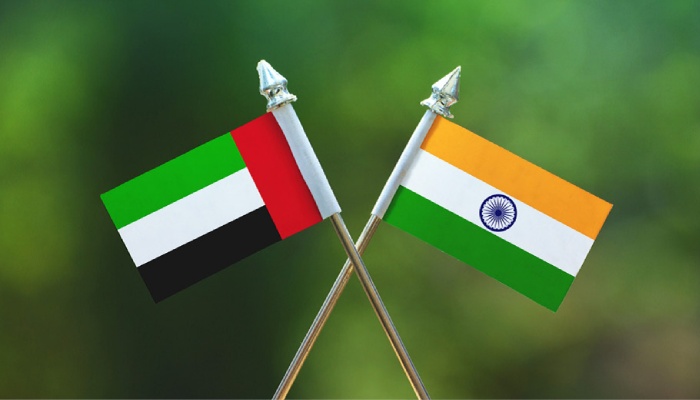
or

The Republic of India and the United Arab Emirates (“UAE”) took a qualitative leap in their ties in furtherance of an already existing bilateral treaty on Juridical and Judicial Cooperation in Civil and Commercial Matters for the Service of Summons, Judicial Documents, Commissions, Execution of Judgements and Arbitral Awards1 by declaring and recognizing UAE as ‘reciprocating territory’2 for the purpose of Section 44A of the (Indian) Code of Civil Procedure,1908 (“CPC”) vide Gazette Notification (“Notification”) dated January 17, 20203. In view of the same, a decree of a ‘Superior (UAE) Court’ can be enforced as if it is a decree of a competent court in India. The new arrangement between India and UAE would ensure expedited recoveries from the defaulters who have fled to India. The execution is the last stage of the civil litigation and the most effective mechanism that enables a decree-holder to realise its dues from the defaulters.
The execution of the decree by a reciprocating territory is governed under Section 44A of CPC and is subject to exceptions (tests of conclusiveness) laid down in Section 13 of the CPC. Post filing, the procedure enshrined in Order XXI of CPC is followed by the courts for adjudication and execution. Moreover, the property (both movable and immovable) of the judgment debtor can be attached and sold in execution to recover the debt/decreed amount.
As per the Notification, the following courts have been identified as “Superior Court”: –
All decrees are executed vide a separate petition filed by the decreeholder against the judgement debtor in accordance with the rules under Order XXI of CPC. A decree in a money suit (recovery) can be executed broadly by the following modes:
In light of the Notification read with related provisions of CPC, the execution of the decree is posed with several challenges listed herein under: –
The Notification provides for execution of money decrees and excludes other non-money decrees like specific performance or injunction and declaratory decrees. Furthermore, it also excludes the execution of the arbitral award.
The fate of the decrees passed by UAE Courts except that passed by Superior Courts is uncertain in absence of any directions and guidelines. In the present scenario, there are no directions, guidelines or any notification either by the legislature or the judiciary in respect of the same.
In the absence of a mechanism to take into consideration the fluctuating exchange rates, the financial interests of the decree-holder may suffer a financial setback as the date of the decree is taken as the date of conversion from AED to INR.
As the period of limitation for filing execution of money decrees is 12 years coupled with silence over condonation of delay, the Notification fails to bring a ray of hope for the decrees passed before that period of limitation.
The courts in India are already burdened with a large number of pending matters that might pose an impediment to quick disposal and early realization of the defaulted amount.
There exists no clarity over the issue of applicable court fees which is payable for the execution of decrees passed by Superior Courts.
The financial recovery strategies of corporate and financial institutions will undergo significant change in order to reap the benefits of the Notification from the perspective of an increased limitation period, decreased costs, expedited recoveries and additional alternatives for realizing debts. At the same time, decree holders will also be immensely benefitted as the Notification will ensure expedited recoveries of potential claims from the defaulters who have fled the territorial jurisdiction of UAE.
The courts in India are required to be well-equipped to be able to expeditiously dispose of the execution matters as the Notification might result in an influx of execution cases. The same can be achieved by issuance of unified rules for execution of the decree of reciprocating territory across India as High Court rules of practice in each state are different along with designated courts to adjudicate upon the execution matters.
Given India’s global footprint and increased investments by UAE in key sectors of India’s economy, it is in best interest to safeguard and strengthen the interest of financial institutions to bolster the trade relations between the two countries.
Tags: King Stubb & Kasiva
Richa K Gaurav has rich and varied experience in diverse litigation matters at various courts, fora and tribunals across the country such as Supreme Court of India, High Court of Delhi, Karnataka High Court, National Company Law Tribunal and National Consumer Dispute Redressal Forum. She extensively advises, assists and represents both Indian and international clients’ including PSUs in recovery and insolvency matters, consumer disputes, commercial litigation and arbitration proceedings. Richa is currently an Associate with King Stubb & Kasiva.

Lex Witness Bureau

Lex Witness Bureau

For over 10 years, since its inception in 2009 as a monthly, Lex Witness has become India’s most credible platform for the legal luminaries to opine, comment and share their views. more...
Connect Us:


The Grand Masters - A Corporate Counsel Legal Best Practices Summit Series
www.grandmasters.in | 8 Years & Counting
The Real Estate & Construction Legal Summit
www.rcls.in | 8 Years & Counting
The Information Technology Legal Summit
www.itlegalsummit.com | 8 Years & Counting
The Banking & Finance Legal Summit
www.bfls.in | 8 Years & Counting
The Media, Advertising and Entertainment Legal Summit
www.maels.in | 8 Years & Counting
The Pharma Legal & Compliance Summit
www.plcs.co.in | 8 Years & Counting
We at Lex Witness strategically assist firms in reaching out to the relevant audience sets through various knowledge sharing initiatives. Here are some more info decks for you to know us better.
Copyright © 2020 Lex Witness - India's 1st Magazine on Legal & Corporate Affairs Rights of Admission Reserved